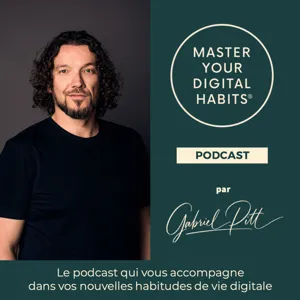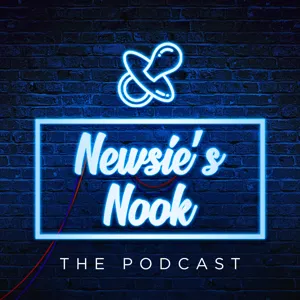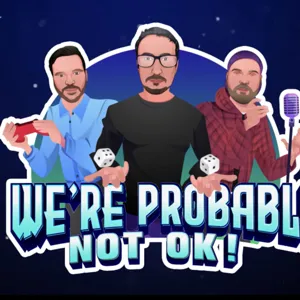Podcast Summary
The Complexities of Moral Intuitions: Our moral beliefs can be influenced by various factors and may not always be based on clear-cut reasoning. Curiosity, observation, and open-mindedness can help us understand the complexities of moral intuitions.
Our moral beliefs and the virtues we deem important are not always based on clear-cut reasoning. They can be influenced by various factors such as upbringing, societal norms, and personal experiences. The story of Jonathan Heit illustrates this point. He grew up believing in a certain set of moral values based on his environment and societal influences. However, his experiences in graduate school and the use of psychedelic drugs led him to question his beliefs and broaden his perspective. This example highlights the importance of curiosity, observation, and open-mindedness in understanding the complexities of moral intuitions.
Understanding morality and purity through cultural and spiritual beliefs: Moral properties are attributed to objects and actions beyond their material nature, and various societies and religions practice rules of purification and contamination to live in accordance with their beliefs.
Our understanding of morality and purity is deeply interconnected with our cultural and spiritual beliefs. The author's experience in India in 1993, where he studied the concepts of purity and pollution, led him to realize that the human mind attributes moral properties to objects and actions that are not material. This belief in contamination and purification is a common theme across various societies and religions, including Hinduism, Islam, and Judaism. These rules and practices serve to orient one's life with the belief that we all have a divine presence within us, obligating us to act in certain ways. The author's experience in India helped him broaden his perspective and understand that different cultures have unique ways of living and organizing their societies, which may not align with Western progressive notions of individualism and egalitarianism. Instead, these societies prioritize the importance of groups, communities, and families, and this does not equate to a bad way of living.
Cultural Perspectives on Morality: Morality varies across cultures, with some prioritizing individual autonomy and others valuing tradition and community. Understanding this can lead to greater respect and appreciation for diverse moral frameworks.
Our sense of self and morality is shaped by the cultures we live in. Some cultures prioritize individual autonomy, while others value tradition and community. As psychologist John Heit learned during his time in India, every society has its unique perspective and expertise. Heit's experience led him to question his own moral framework and appreciate the wisdom of other cultures. He saw that morality is like taste, with universal elements but unique expressions in different cultures. By recognizing this, we can better understand and respect the diverse moral frameworks that exist around the world.
Common moral foundations in various societies: Universal moral foundations like care for the vulnerable and fairness manifest differently in various cultures, leading to diverse interpretations of fairness, loyalty, respect for authority, and sanctity.
Moral frameworks around the world are built on common foundations, including our instincts as mammals to care for the vulnerable and our sense of fairness. These foundations manifest differently in various societies, leading to varying notions of fairness, loyalty, respect for authority, and sanctity. For instance, fairness is valued universally but can be interpreted differently, with progressives focusing on equality and justice, while conservatives emphasize merit and individual responsibility. Similarly, loyalty and respect for authority are more deeply ingrained in the right, while the left tends to prioritize individual freedoms and challenges established structures. Understanding these common moral foundations and their cultural variations can foster empathy and dialogue between different groups.
Moral beliefs shaped by cultural backgrounds: Understanding moral differences rooted in cultural backgrounds can lead to empathy and productive conversations, reducing conflict and hatred.
People's moral beliefs and priorities, often shaped by their cultural backgrounds, can significantly differ. Progressives and social conservatives, for instance, prioritize different moral foundations - caring and reducing harm versus loyalty, group loyalty, authority, and purity. These differences can lead to misunderstandings and conflict, often seen in debates around family and parenting styles. Moral Foundations Theory, which emerged in the 1990s, has been instrumental in helping people understand these differences and empathize with those holding opposing views. By recognizing that moral matrices are not universal but shaped by cultural contexts, we can foster more productive conversations and reduce hatred, ultimately leading to a more inclusive and understanding world.
The Importance of Balance in Societal Progress: A balanced approach to societal progress is essential to prevent the negative consequences of unchecked progressive or right-wing regimes. Overemphasis on protecting people from harm can stifle societal progress.
A balanced approach to societal progress is crucial for healthy societies. John, after recognizing the influence of moral values on people's perspectives, became a centrist. He observed that while progressives drive rights revolutions and address injustice, an unchecked progressive regime can lead to chaos. Conversely, a right-wing regime without counterbalance can result in repressive and exclusionary social patterns. Greg Lukinoff, a lawyer and free speech advocate, noticed a trend in college students during the late 2010s. Instead of advocating for more freedom, students were demanding more intervention from administrators. Greg believed that students were being exposed to a form of reverse cognitive behavioral therapy, leading to increased depression and distorted thinking. This phenomenon was reflected in the growing demand for trigger warnings and safe spaces. John saw a connection between the moral foundations theory and the college campus phenomenon. Progressives' emphasis on protecting people from harm had led to an expansion of perceived harms. However, this new sensitivity to harm, while rooted in a good intention, could potentially stifle healthy societal progress.
Excessive focus on care can hinder child development: An overemphasis on care can limit challenges needed for resilience, while social media contributes to anxiety and depression, leading to a significant increase in mood disorders among young people since 2012.
Monomania, or an excessive focus on one thing, can be harmful, especially when it comes to education and child development. Psychologist Jonathan Haidt believes that an overemphasis on care and protection can hinder children's growth by denying them the challenges they need to develop resilience. At the same time, the rise of social media and virtual worlds has created a seductive but dangerous alternative to real-world experiences, contributing to an epidemic of anxiety and depression among young people. The data from long-running longitudinal studies shows a significant increase in mood disorders, self-harm, and suicide rates among girls starting around 2012. While social media is a major contributor to this crisis, other factors such as school shootings and lockdown drills may also play a role. Overall, it's essential to strike a balance between care and challenge in education and to encourage young people to engage with the real world rather than retreating into virtual spaces.
Link between smartphone use and mental health issues among young girls: Excessive smartphone use among young girls in certain countries linked to rise in depression, anxiety, self-harm, and suicide, despite global economic improvements. Companies like Instagram target girls, but can lead to bullying, social comparison, and even sexual predation, negatively impacting mental health.
The excessive use of smartphones and social media platforms among young people, particularly girls in New Zealand, Australia, Canada, and the UK, has been linked to a rise in mental health issues such as depression, anxiety, self-harm, and suicide. This is despite improvements in the global economy during the same period. Young people spend a significant amount of time on their phones, leading to continuous partial attention and lack of presence in the physical world. Companies like Instagram target girls with their communal features, but once engaged, girls are subjected to constant bullying, social comparison, and even sexual predation. The harms extend beyond just the opportunity cost of time spent online, and include negative impacts on mental health.
Social Media: A Social Trap for Young People's Mental Health: Delay introduction of smartphones and social media, create phone-free school zones, and promote free play and independence to reduce mental illness risks and improve young people's overall well-being.
Social media has become an integral part of young people's lives, but it also poses significant risks to their mental health and development. The discussion suggests that social media use can be likened to a social trap, where kids feel compelled to use it because everyone else is. The proposed solutions include delaying the introduction of smartphones and social media, creating phone-free school environments, and promoting more free play and childhood independence. By implementing these norms, it is believed that we can help reduce mental illness and improve overall well-being for young people.
The Paradox of Protecting Children in the Digital Age: We need to find a balance between protecting children physically and ensuring they're safe online by setting boundaries, teaching digital literacy, and encouraging face-to-face interactions.
We're facing a paradox when it comes to protecting children in the digital age. On one hand, we're over-protecting them in the physical world, denying them necessary experiences. On the other hand, we're under-protecting them online, where they're vulnerable to the negative effects of social media. Author Jonathan Haidt, in his book "The Anxious Generation," compares a smartphone to the Kuku Bird, which lays its egg in another bird's nest and pushes out all other eggs. When we give our kids a smartphone, they'll likely spend most of their time on it, pushing out other activities. Haidt argues that this is particularly harmful for liberal, secular, and cosmopolitan kids, who are less rooted in their communities and more susceptible to the negative effects of social media. The solution, according to Haidt, is to find a balance between protecting our children in the physical world and ensuring they're safe and responsible online. This can be achieved by setting boundaries, teaching digital literacy, and encouraging face-to-face interactions. In short, we need to be mindful of the paradox and take a holistic approach to raising children in the digital age.






